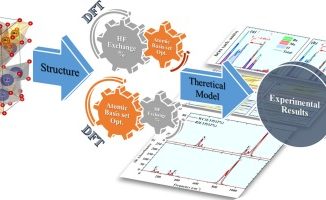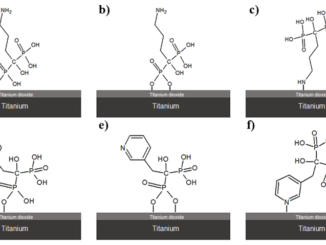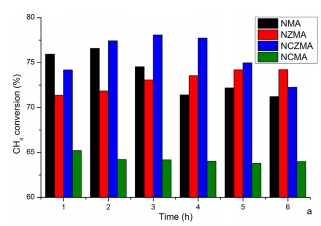
Investigation of the electrocatalytic activity for ethanol oxidation of Pt nanoparticles modified with small amount (<= 5 wt%) of CeO2
Abstract: Pt is still the state of the art electrocatalyst for the oxidation of ethanol but it is poisoned by the CO-intermediates resulting in a slow ethanol oxidation reaction kinetic. Here, we show that the electrocatalytic activity of unsupported Pt nanoparticles for the ethanol electro-oxidation in acid medium can be significantly enhanced by the addition of small amounts of CeO2 nanoparticles (<= 5 wt%). Comparative studies on bare Pt, Pt-CeO2 1 wt% and Pt-CeO2-5 wt% catalysts composed of Pt nanoparticles with different sizes (from 10 to > 40 nm for bare Pt, and from 6 and 20 nm for the Pt-CeO2 composites) revealed an increase of the microstrain with the decrease of the Pt’s average particle size. Besides, there is a strong electronic interaction between the Pt and CeO2 nanoparticles, demonstrated by a systematic shift of the Pt 4f(7/2) peak to lower binding energy with the addition of CeO2. Chronoamperometric data showed that the steady state current density normalized to Pt’s electrochemical surface area for ethanol electro-oxidation is mainly governed by the microstrain, and it decreases with increasing strain. This trend is explained in terms of a more facile activation of the ethanol molecule at the surface of less strained Pt nanoparticles. Thus, the best performance was obtained with Pt-CeO2 1 wt% formed by Pt nano particles with an average size of 18 nm, reaching 1.0 A.m(-2) after 900 s at 0.6 V vs SCE.
Author(s): Paulo, MJ; Venancio, RHD; Freitas, RG; Pereira, EC; Tavares, AC
JOURNAL OF ELECTROANALYTICAL CHEMISTRY
Volume: 840 Pages: 367-375 Published: MAY 1 2019
DOI: 10.1016/j.jelechem.2019.04.008




